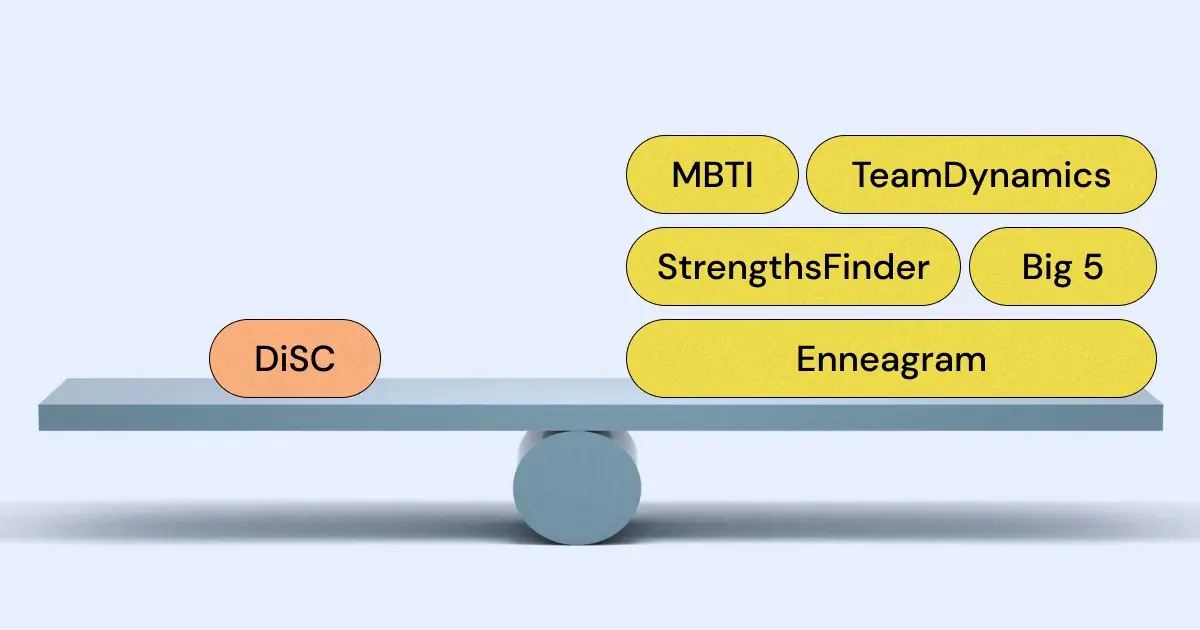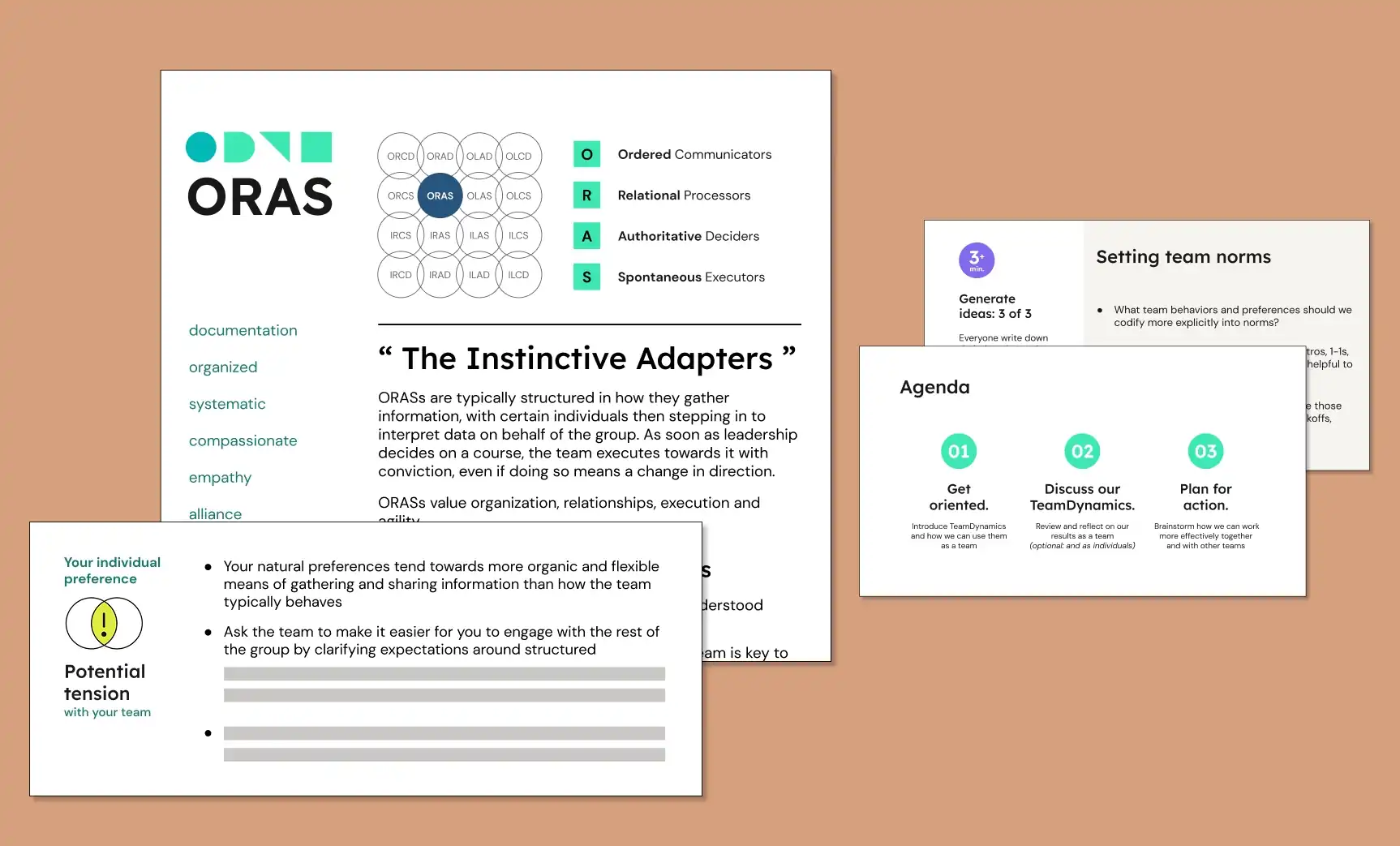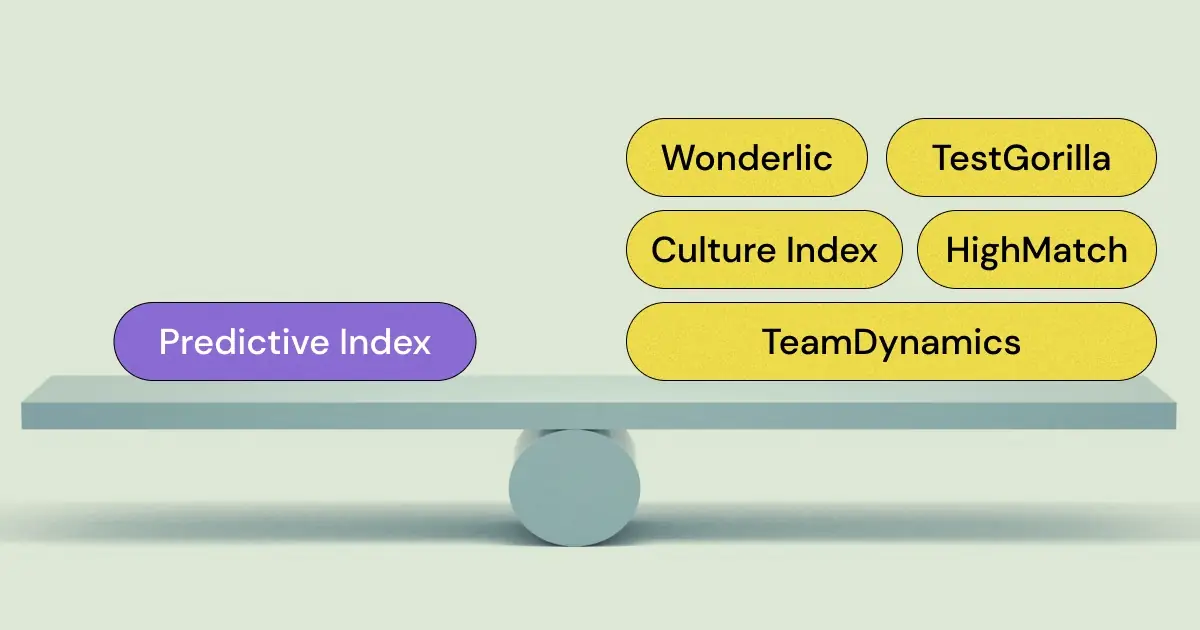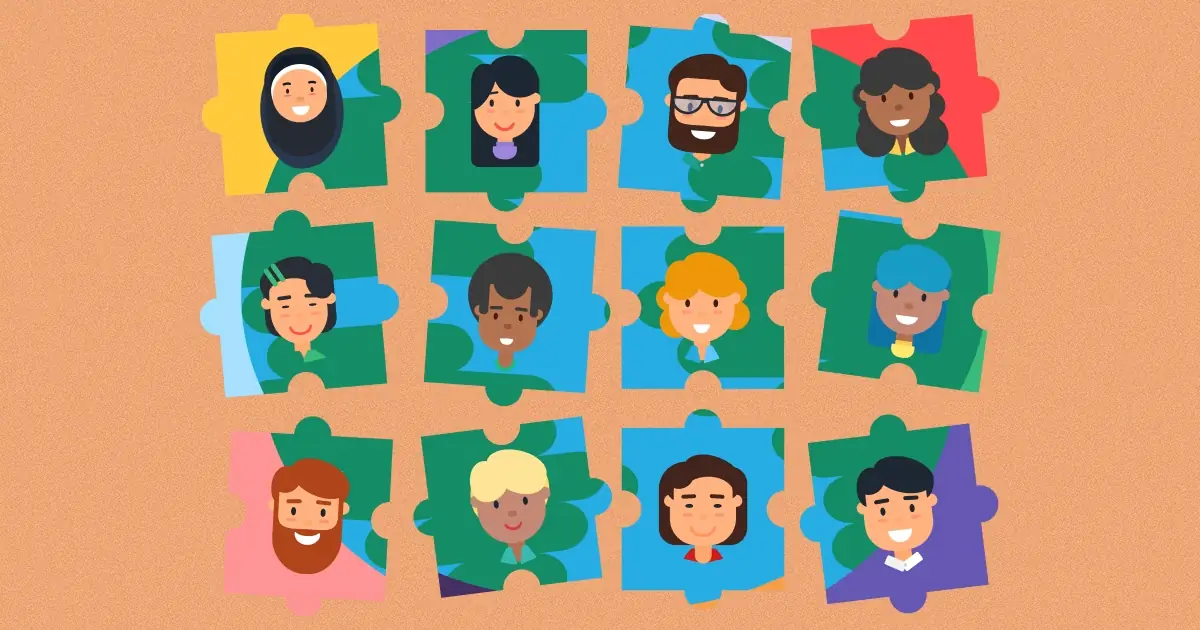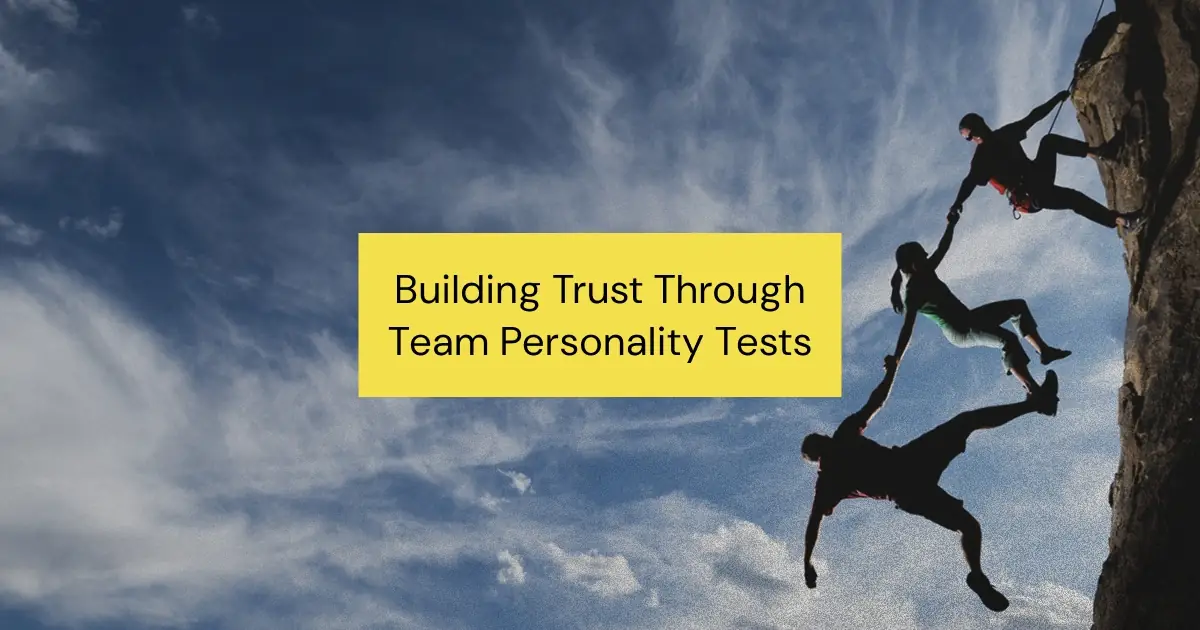Are you looking to better understand the unique personalities within your team? While the DiSC assessment is a popular tool for identifying workplace behavior styles, there are other great alternatives worth considering.
In this blog post, we’ll explore the top 5 alternatives to DiSC that can offer fresh insights into team dynamics. These tools go beyond just identifying individual traits; they also highlight how different personalities interact within a team. Whether you’re seeking to enhance collaboration or improve communication, these alternatives provide unique perspectives to help your team work together more effectively.
Alternative #1: StrengthsFinder (aka Gallup CliftonStrengths)
While DiSC explores behavior styles, StrengthsFinder zeroes in on the specific talents of your team members, offering a clearer path to success.
Ever wondered why some team members excel in brainstorming sessions while others are better at detailed project planning? While the DiSC assessment is a popular choice for understanding workplace behavior, StrengthsFinder (also known as CliftonStrengths) offers a practical alternative.
Understanding Team Roles with StrengthsFinder
StrengthsFinder identifies 34 unique talent themes, helping team members discover their top strengths. This tool explains why some individuals excel in innovation (like those with Strategic strengths) or maintain harmony (like those with Relator strengths). Understanding these strengths can help you assign roles effectively, anticipate potential conflicts, and leverage your team’s talents.
Why StrengthsFinder is a Good Alternative to DiSC
While DiSC focuses on behavior styles, StrengthsFinder provides a detailed and actionable understanding of individual talents. It goes beyond general personality traits, helping you identify what your team members are naturally good at. This makes it easier to apply these insights in a work setting, especially when building and managing teams.
Want to use StrengthsFinder for team building? Check out our free CliftonStrengths team building workshop download!
StrengthsFinder in Action
Imagine you’re assembling a project team. With StrengthsFinder insights, you can pair a team member with Analytical strengths with another who has Ideation strengths, balancing detail orientation with creativity. This approach ensures that strengths are recognized, celebrated, and utilized effectively.
Alternative #2: TeamDynamics
Designed to understand and optimize team dynamics, TeamDynamics is an essential tool for any leader or HR professional looking to build a successful, cohesive team in today’s fast-paced professional world. Don’t just assemble a group of individuals—build a high-functioning team with TeamDynamics.
Meet TeamDynamics, the personality test crafted specifically for modern teams. Unlike other tools that mainly focus on individual traits, TeamDynamics is designed for team settings. Think of it as the go-to assessment for team building, aimed at fostering understanding and collaboration in today’s professional environments.
Why Choose TeamDynamics?
TeamDynamics is more than just another personality test. It’s a groundbreaking tool that blends the best aspects of traditional assessments with a unique focus on team synergy. By evaluating how individual personalities mesh together, TeamDynamics provides actionable insights crucial for building high-functioning and harmonious teams.
Want to see a sample of what you get with TeamDynamics? Download a preview of TeamDynamics today!
TeamDynamics vs. DiSC
While DiSC assesses behavior styles, TeamDynamics offers a more practical and team-oriented approach. It examines the whole team to understand how members communicate and collaborate. It’s not just about identifying individual strengths; it’s about understanding the unique behavioral traits of the group to enhance overall team performance and collaboration.
The Special Sauce of TeamDynamics
What sets TeamDynamics apart is its emphasis on real-world applicability. It provides a practical toolkit for team leaders to identify areas for improvement. This is especially important in environments where teamwork and collaboration are crucial, such as in tech and consulting industries.
Real-World Impact of TeamDynamics
Imagine leading a tech product team. With TeamDynamics, you can identify team norms and practices that need enhancement, creating a team that’s not only talented but also perfectly in sync. TeamDynamics stands out as a cutting-edge tool tailored for modern teams, offering insights that go beyond traditional personality assessments.
{{inline-cta}}
Alternative #3: Myers-Briggs Type Indicator (MBTI)
MBTI offers a comprehensive lens to understand your team’s personalities. It’s an invaluable tool in team analysis, providing insights that can be used alongside other assessments like DiSC.
The Myers-Briggs Type Indicator (MBTI) is a well-known tool for understanding individual personality types and their impact on team dynamics. Unlike assessments like DiSC, which focus on behavior, MBTI gets deeper into the psychological preferences of individuals, categorizing them into 16 distinct personality types. This framework provides a comprehensive roadmap for navigating the complexities of workplace interactions.
Personality Insights with MBTI
Imagine being able to anticipate your team’s responses in high-pressure situations or identify who will naturally take charge in a crisis. MBTI helps achieve this by categorizing team members based on their psychological preferences. For example, individuals with the ENTJ type are often natural leaders, while ISFJs provide steady support and attention to detail. These insights are crucial for planning projects, crafting communication strategies, and resolving conflicts effectively.
MBTI vs. DiSC
While DiSC offers a straightforward analysis of behavior styles, MBTI provides a more nuanced and theoretical approach to understanding personality. MBTI categorizes individuals into 16 types, offering a detailed exploration of how people perceive the world and make decisions. This deeper understanding is essential for managers and team leaders who want to optimize team dynamics and foster a collaborative work environment.
Want to use MBTI for team building? Check out our free MBTI team building communication workshop download!
Practical Application of MBTI
Consider a scenario where you’re managing a team with tight deadlines. An INTJ’s strategic thinking combined with an ENFP’s creativity can drive the project forward while maintaining a balance between innovation and efficiency. Understanding these personality types helps in forming teams that are not only skilled but also complementary in their approaches.
Alternative #4: The Big Five Personality Traits (Five Factor Model)
The Big Five Personality Traits offer a comprehensive and nuanced view of individual personalities, making it a robust tool for understanding and optimizing team dynamics. It goes beyond the surface, providing insights into the core drivers of behavior, which are crucial for effective team building and management.
The Big Five Personality Traits, also known as the Five Factor Model, is like the Swiss Army knife of personality assessments—versatile, reliable, and comprehensive. This model breaks down personality into five key traits: Openness, Conscientiousness, Extraversion, Agreeableness, and Neuroticism, often remembered by the acronym OCEAN.
In-Depth Insights with the Big Five
Think of the Big Five as a high-definition map of human personality. It dives deep into understanding not just how team members act, but why they act that way. For instance, someone high in Openness might be your go-to person for innovative ideas, while a team member with high Conscientiousness could be the one who keeps projects on track. This model provides a nuanced understanding of individual differences, making it invaluable for team building.
Big Five vs. DiSC
While DiSC focuses on behavior styles, the Big Five offers a broader and more detailed view of personality. It emphasizes core traits that drive behavior in various situations, providing a comprehensive lens that is essential for managers seeking to build well-rounded teams. Unlike MBTI, which categorizes individuals into 16 types, the Big Five provides a more flexible and empirical approach to understanding personality, making it an excellent alternative to DiSC.
Want to use the Big Five Personality Traits with your team? Download our free Big Five team building workshop!
Applying the Big Five in Teams
Imagine planning a new initiative. You’ll want team members who score high in Extraversion to champion the project and those high in Agreeableness to ensure team harmony. The Big Five helps not only in assigning roles but also in fostering a team culture where everyone’s natural traits are respected and leveraged for collective success.
Alternative #5: Enneagram
The Enneagram offers a richer and more nuanced view of personality by focusing on underlying motivations and fears. This deeper understanding is crucial for building cohesive teams and fostering a supportive work environment. It provides insights that go beyond surface-level traits, offering a path to personal and professional growth.
The Enneagram offers a unique approach to understanding personalities, going beyond surface traits to uncover deeper motivations and fears. Unlike DiSC, which categorizes behavior styles, the Enneagram identifies nine distinct personality types, each providing profound insights into what drives behavior.
The Enneagram’s Deeper Insights
Think of the Enneagram as a psychological map that not only identifies how team members behave but also explains why they behave that way. For instance, Type 3, the Achiever, is driven by a desire for success and recognition, while Type 9, the Peacemaker, seeks harmony and avoids conflict. This model helps you understand core motivations, leading to more empathetic and effective team management.
Enneagram vs. DiSC
While DiSC focuses on categorizing behavior, it often feels more static and straightforward. The Enneagram, on the other hand, dives deeper into the core motivations and fears that shape behavior. It offers a dynamic framework that can evolve with personal growth, making it more adaptable and insightful for understanding team dynamics. This makes it an excellent alternative to DiSC for those seeking a more nuanced understanding of their team.
Want to use the Enneagram for team building? Try our free Enneagram team building workshop!
Practical Application of the Enneagram
Imagine leading a team facing a challenging project. Knowing that a Type 6, the Loyalist, excels in creating contingency plans, or that a Type 7, the Enthusiast, brings creativity and enthusiasm, allows you to leverage these strengths strategically. The Enneagram helps you build a team where each member’s deeper motivations are understood and harnessed for collective success.
Comparing the Top 5 Alternatives to the DiSC Assessment
Looking to understand the pros and cons each the best DiSC assessment alternatives? Take a look at this simple comparison table.
| Tool |
Primary Focus |
Pricing |
Best For |
Key Strengths |
| StrengthsFinder (Gallup CliftonStrengths) |
Individual Talents |
One-time Payment |
Teams needing actionable insights into strengths |
Identifies 34 talent themes, practical for team building |
| TeamDynamics |
Team Synergy |
One-time Payment |
Teams focusing on performance, collaboration and alignment |
Team-focused, identifies norms, enhances collaboration |
| Myers-Briggs Type Indicator (MBTI) |
Psychological Preferences |
One-time Payment |
Teams looking for deep psychological insights |
16 personality types, useful for planning and communication |
| Big Five Personality Traits (Five Factor Model) |
Core Personality Traits |
Typically Free/One-time Payment |
Organizations needing detailed personality insights |
Covers 5 key traits, flexible and empirical approach |
| Enneagram |
Motivations and Fears |
Typically Free/One-time Payment |
Teams wanting to understand deeper motivations |
Nine personality types, focuses on personal growth |
Conclusion
As we wrap up our exploration of the top 5 alternatives to DiSC, it’s evident that understanding team dynamics requires more than a one-size-fits-all approach. From the comprehensive insights of the Big Five Personality Traits to the in-depth focus of the Enneagram, each tool offers unique perspectives on team dynamics.
Want to hold a team building workshop using DiSC? Check out our free downloadable MBTI team communication workshops!
While DiSC provides valuable insights into behavior styles, TeamDynamics emerges as the real game-changer. TeamDynamics combines the best aspects of methodologies like StrengthsFinder and the Enneagram, with a sharp focus on team interactions and synergy. This makes TeamDynamics the top choice for elevating team performance, particularly in tech and consulting sectors.
By prioritizing team synergy and understanding the nuances of team interactions, TeamDynamics offers more than the individualistic approach of DiSC. It provides a comprehensive view of how to harness the unique strengths and behaviors of each team member to form a cohesive, high-performing unit. For anyone looking to enhance team collaboration and performance, TeamDynamics stands out as the superior option.
Remember, the key to a successful team lies not only in understanding individual strengths but in harnessing these strengths to create a unified whole. Apply the insights from TeamDynamics to transform your team into a more dynamic, productive, and unified entity.
Take a free trial of TeamDynamics today and discover the difference it can make in unlocking your team’s full potential. With the right team dynamics, even the most ambitious goals become achievable realities. Start your journey towards building a high-performing team with TeamDynamics now.


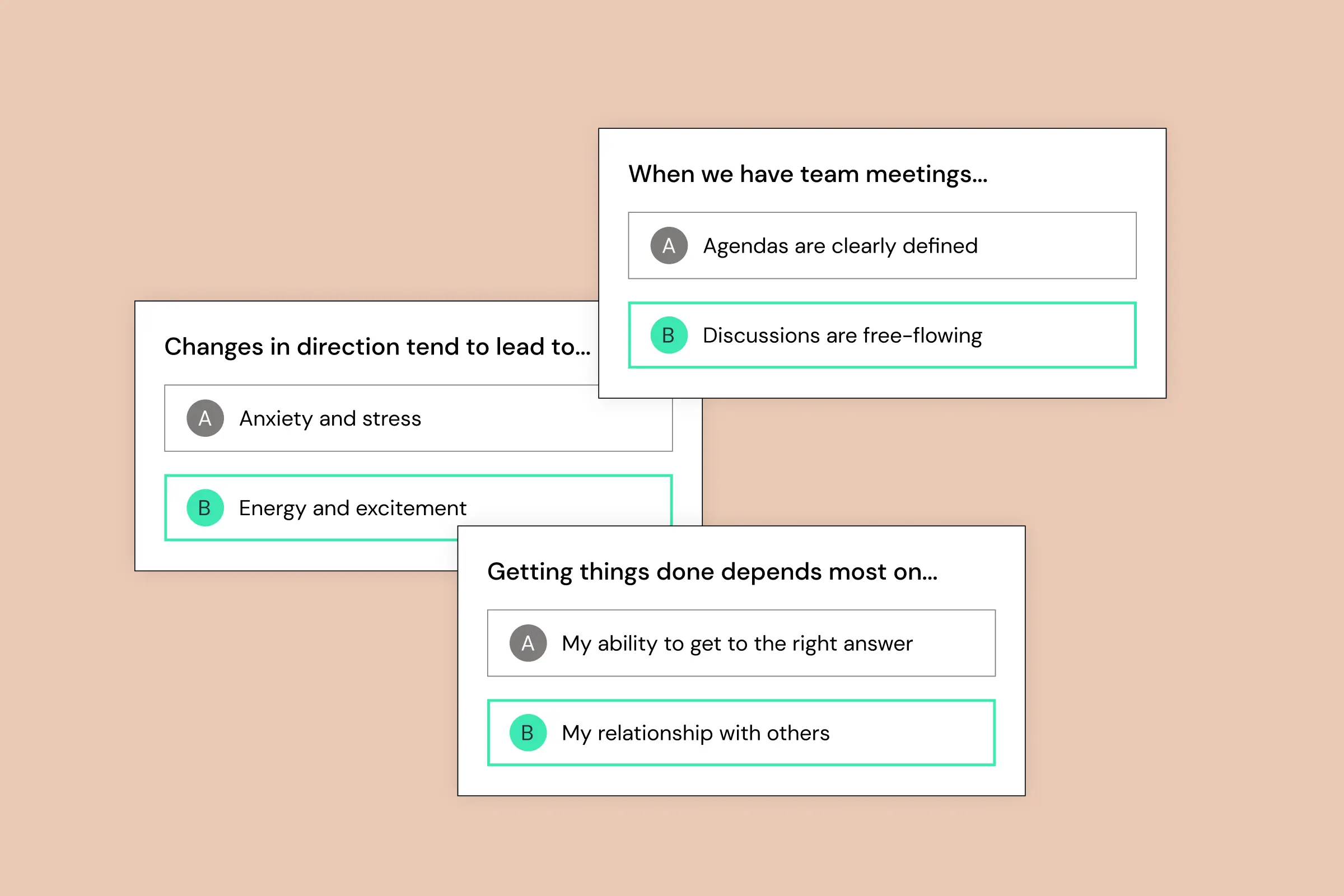

.png)
